The best new albums this week
A cavalcade of the best new albums for your listening pleasure
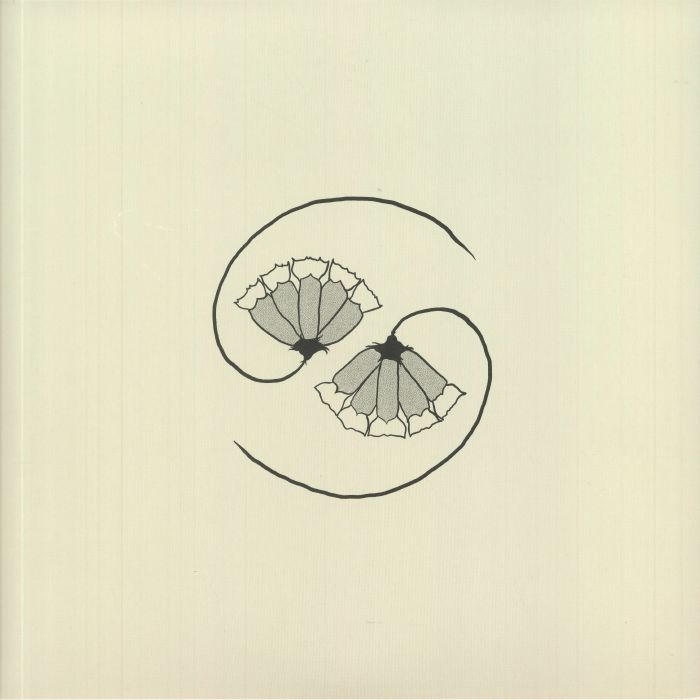
ALBUM OF THE WEEK
Godspeed You! Black Emperor – G D’s Pee At State’s End! (Constellation)
When Godspeed first exploded onto the chamber rock-punk scene things looked different to today. You could even argue the band were a little premature, with their debut album F#A#∞ arriving in the heady late-1990s, a comparatively innocent period wherein the anti-capitalist movement wasn’t much more than the remnants of 1960s’ hippy ideals decimated by the 1970s and 80s. An era when shared economies, true equality and sustainability were outsider ideas, overshadowed by false promises of growth under a globalised system.
Nevertheless, the record was well received, and is remembered for its unique take on politicised music. Instrumentals and atmospheres took centre stage, words taken off the agenda in favour of sounds open to deep, personal interpretations. Predicting the increasingly isolated, post-modernist reality of consuming art we’re all now familiar with, it gave rise to more revered full-length releases before time was called in 2003. Seven years on the band returned to confront a world that finally seemed ready to take that messaging seriously, the problems it addresses suddenly far more urgent.
The difficulty in tracing Godspeed’s history beyond gigs you’ve attended and albums you own only accentuates their stance. Just a handful of interviews with the band have ever been published, there is no website nor social media presence, and no more than two official photos exist — the first taken in 1997, the second in 2010 and a direct re-creation of the first. This refusal to engage with modern music marketing and publicity should reassure us these souls will never be sold to the highest bidder, in turn making us aware those high bidders often support the wildly unfair systems that have conspired to set humanity on this disastrous course. An illusion of autonomy masking preparations for an imminent handcart ride to hell.
One look at current affairs in spring 2021 proves that Godspeed were made for this age. As the notes accompanying STATE’S END! explain, the album has been born at a point in history where more people than ever are convinced we are doomed. Pandemic ravaged, environmentally crippled, monetarily broken and no longer able to hide beneath the thin veils of trickle down economics and surface level socialism, we are out of sync with the natural world and ourselves, and the position is untenable. Even if you don’t believe COVID-19 vaccinations are preparing us to be uploaded to the mainframe, where we can better serve the technocracy, you don’t have to look far for evidence of how worrying the immediate future looks. Nor does it take much to convince us change is now essential for survival, and impossible without major intervention.
Clarifying that point, this release is accompanied by specific demands – empty the prisons, shift power from authorities to disenfranchised communities, dismantle imperialistic structures to end ‘forever wars’, make the wealthiest impoverished and lift have-nots out of financial servitude. Translated into music, rather than overtly angry tones instead think four slow-burning, epic tracks, each comprising several individual movements in which we find soaring majesty, eerie and haunting quiet, calming drones and distorted crescendos. There are tense dystopian moods made to soundtrack whatever comes after our terminally ill society falls down dead. Then there are moments of such rousing and stirring beauty the experience is cathartic, like a reminder that even in the darkest times and most dangerous places people create wonderful things. A declaration of resilience that offers some hope we will survive beyond the blueprints governing life as we know it, those sold as solutions yet so often complicit in threatening us with our own extinction.
MH
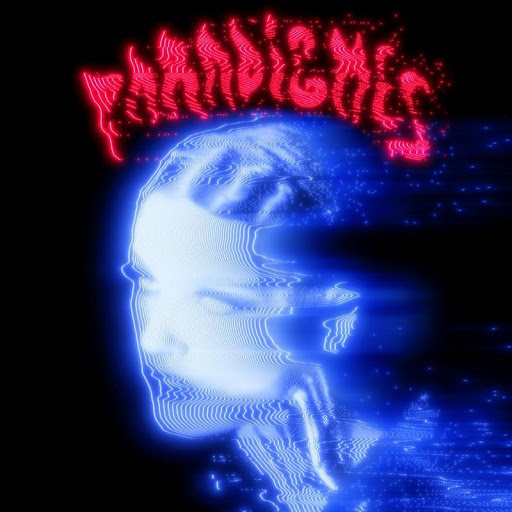
La Femme – Paradignes (Microqlima)
Since their debut LP Psycho Tropical Berlin, released back in 2013, French kraut/psych-rockers La Femme have continued to solidify their reputation as one of the most exciting groups making alternative rock. With an utterly unmistakable sonic and visual aesthetic, La Femme’s music exists in a world of its own, consisting in surreal scenes, colourful mythologies, and throbbing kraut-rock basslines. Where you might be tempted to find such a group to be all-aesthetic, they rarely follow any kind of formula; the new LP is set to show how “Paradigms vanish, masks come off. From now on, nothing will be the same anymore.”. The group have been preparing for the release of the hotly-anticipated Paradigmes since late last year, and have made a number of singles available from it; including ‘Le Sang de mon prochain’, ‘Le jardin’, ‘Foutre le bordel’, ‘Cool Colorado’ ‘Paradigme’, and ‘Disconnexion’. From the sheer variety of musical styles and genre-specific instrumentation on these singles, La Femme are evidently more comfortable than ever when it comes to experimenting sonically and lyrically.
This record wonderfully showcases their iconoclastic tendency for playing with styles: with breaking the conceived moulds of genres as they assimilate them. The more recently released ‘Le jardin’ features lyrics entirely in Spanish, for example, with the strangely uplifting sentiment: “No esperes nada de la vida”; the winding lazy guitar lines and reverb-laden vocals make this track the perfect early morning eye-opener. In opposition to the laidback, ‘Foutre le bordel’ is a welcome jolt of chaotic, pulsating energy, begging you to join in with its shouted chorus and mission-statement to ‘fuck it up.’. Having had the delight of seeing the group in Shepherd’s Bush when they toured Mystère in 2016, I’ve been eagerly waiting for a long time for some new music from La Femme, and Paradigmes is shaping up to be an excellent listen already.
JC
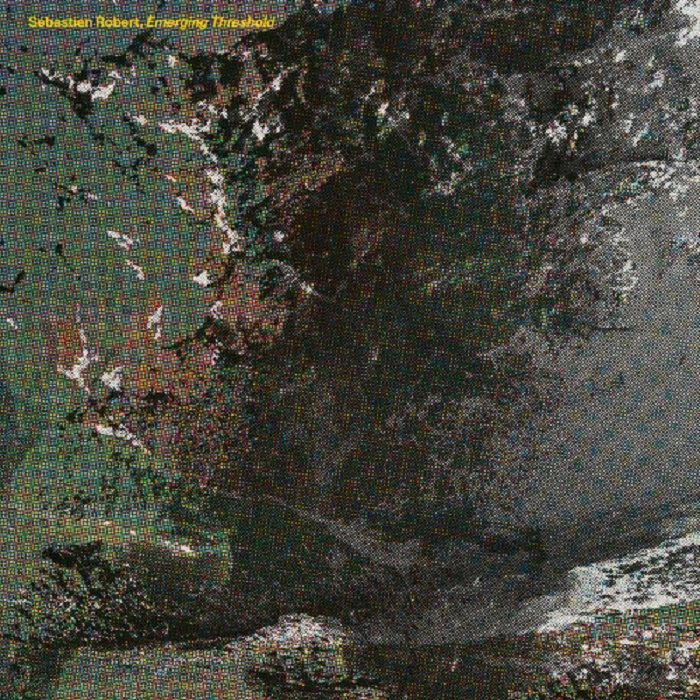
Sébastien Robert – Emerging Threshold (Meakusma)
Thoroughly rooted in a time and place, Sébastien Robert’s debut album serves as a conversation with the majestic landscape of the Sierra Nevada’s western flank in Chile. Robert captured field recordings in the region, and experimented with the trutruka – a wind instrument used by the Mapuche in south-central Chile. This investigative slant to his music collides with highly developed synthesis, resulting in a hybridised sonic which feels indebted to the epic natural states of his inspiration, but equally elevated above the trappings of terra firma.
The album follows a logical arc of sorts, seemingly rooted in the earthly vibrations of the area and instrument in the teasing, patient tones of ‘Exploring Conguillio’. Here, the most explicit synthesis comes as light and scattered blobs of monosynth in the latter stages of the track. ‘Glimpse Of Lonquimay’ opens up to the light with a more mobile, expressive composition led by a beautifully distorted figure dancing in the foreground of the mix. It may be steeped in electronic processes, but feels inherently connected to the organic.
‘Sierra Nevada’ serves as a kind of axis for the album to pivot on, resplendent in its musicality and fluidly shaped, edging away from overtones and sampled sound towards a more purely electronic sound field. The undulating sequences of ‘Imaginary Geography’ continue this trend onto ‘Decolonise Thoughts’, which features the kind of expansive drones and stuttering, tortured digital matter you’d readily associate with Tim Hecker.
As we reach ‘Living Future’, the harmonic overtones have returned in abundance, but they’re harried by electronic processes. Twitching with febrile anima, it feels like a curious balance between the distinct energies that inhabit this album. The formidable, ancient power of nature in conversation with the needlepoint behaviour of technology. Robert may not be the first to explore this divide, but his contribution is a valuable one.
OW
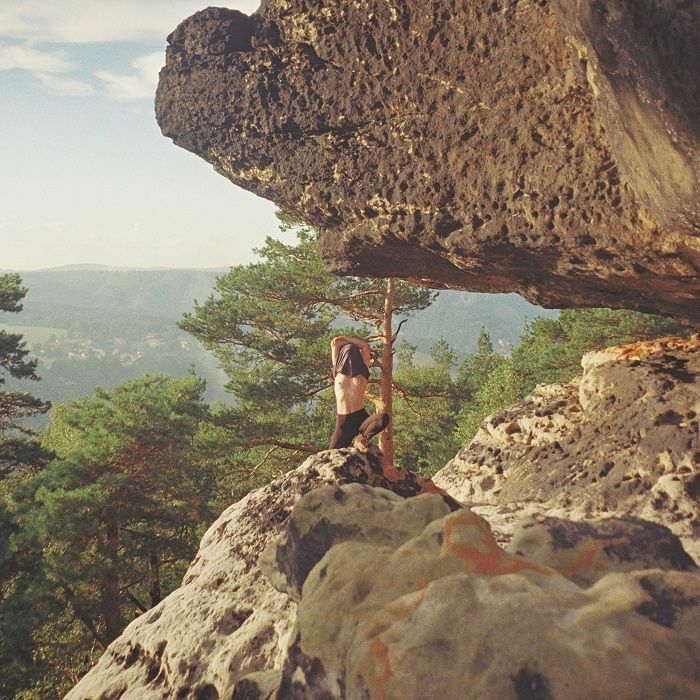
Perila – Everything Is Already There (Boomkat Editions)
Boomkat’s Documenting Sound series surely ranks amongst the most compelling creative responses to the pandemic, shot through with an honesty and curatorial rigour which felt appropriate and never once contrived. It’s fitting that some of the astounding releases created in direct reaction to huge upheaval get a reappraisal outside of the mammoth tape series, and Perila’s Everything Is Already There is a must.
Perila is an intriguing, hard to pin down artist serving up the kind of fearless experimental music which shirks categorisation until it inadvertently creates its own niche. In just a couple of years she’s shelled out a cornucopia of tapes full of strange, shivering sonics, leaving a familiar listener on tenterhooks when hitting play on a new release. On this occasion, the effect is outwardly aggressive, as ‘Time Swamp’ oozes and crackles with amorphous attitude, but it’s not long before you’re lilting in the mellow, guitar-plucking balm of ‘Desert Blue’. Replete with Ulla’s sax, ‘Room Inside’ takes you right into the heart of lockdown claustrophobia in a most artful of ways, guided by Perila’s murmured voice.
Likewise Perila’s voice and Ulla’s sax lead the way in beat poetry form on ‘Pocketful Of Nothing’, and it’s this force of personality which is tangible throughout the album, driving home the magnetism of her bold, unapologetic approach to music.
OW
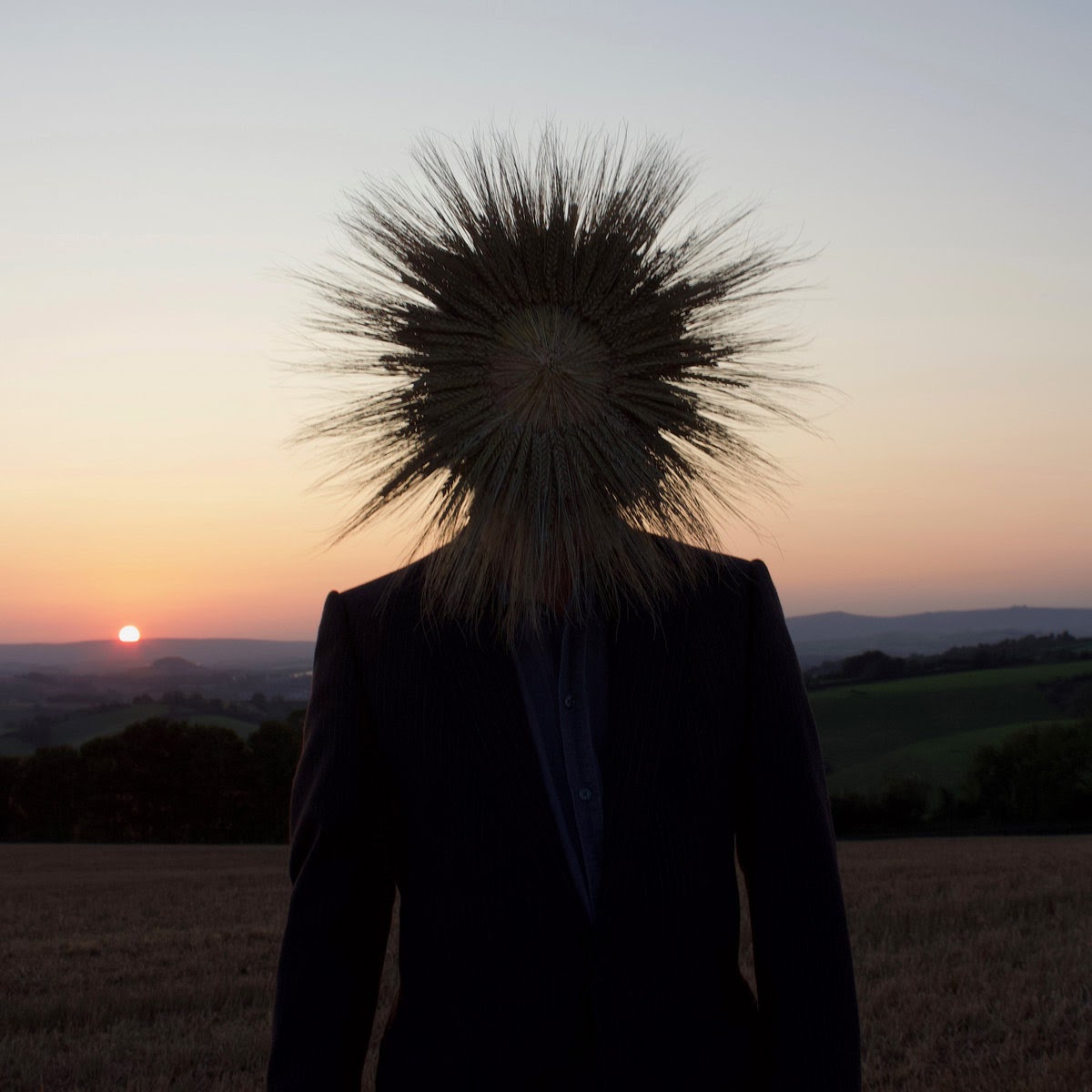
David Handford – Weather Light & Ghoul (Above 690)
Devon-based producer David Handford, also known by his alias Acid Slag, has released ‘Weather, Light & Ghoul’ this week: a ten-track album of raw electronica recorded in single takes, live in his studio with no overdubs or edits.
A synthesist and inventor by nature, Hanford constructs his own electronic devices for use in his compositions. We hear this inventiveness play out in his own music, and, of course, sometimes you just want to hear out such hellish rarities from the jam-vaults.
It marks a more downtrodden shift away from Handford’s dancier, more pastoral 2018 work on the album ‘Uplands’. ‘Weather, Light & Ghoul’, in all its expansively drab glory, sounds like killer robot bugs invading a cathedral hall. We enter with ‘Squallish’, a triplet-time saunter through abrasive synthesis and noise, each new synth progression sounding equally wet and dry, like being slapped in the face by some kind of pisciform sandpaper demon. ‘Formaldehyde’, by contrast, is a grab-by-the-arm through electrical buzz; some might argue that we suffer through this track more than we enjoy it, which certainly rails against hedonistic definitions of art.
‘Watcombe Hall’ is as reverb-heavy as its name suggests, drawing creepy inspiration from the name of a closed-down mental health hospital for teenagers in Torquay, found to be inadequate. And, not surprisingly, the album carries on this theme of mental uncertainty; ‘Itcher’ sounds like the grating teeth of a clockwork snake, while ‘Grammersows’ drives a series of bass pulses forward with Danish-crime-drama levels of urgency. ‘Foreliane’ sounds like the sinister reactor core of a motorised city; ‘Goofballs’ sounds like techno made by and for sentient nanobots. We end on ‘Ant Attack’, which does exactly what it says on the aluminium nest mould.
JIJ
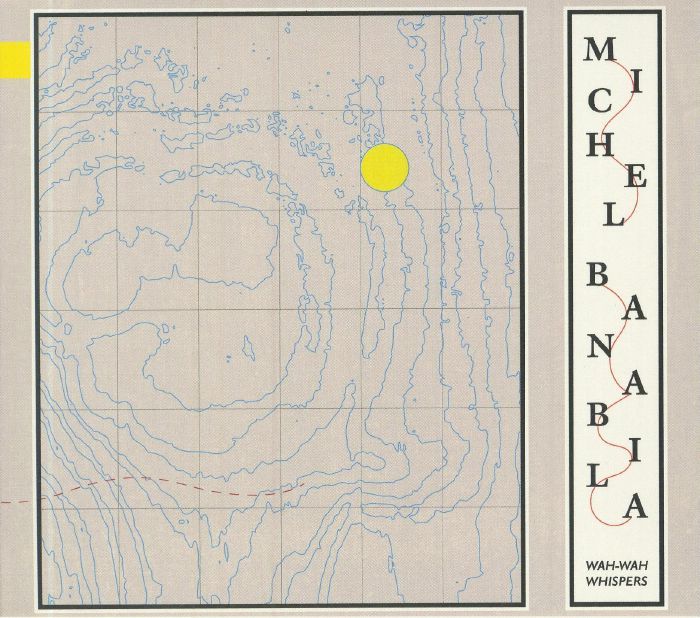
Michel Banabila – Wah-Wah Whispers (Bureau B)
There are certain artists whose oeuvre is so monolithic it can be tricky knowing where to begin – the kind of auteurs who exist outside trends and scenes and simply spend their lives forming mountains of published material for hapless listeners to scale. Dutch tinkerer Michel Banabila is certainly one of those, who since 1983 has steadily issued all kinds of material spanning different approaches and styles with an overall inquisitive, leftfield slant whether dealing in rhythms or ambience, field recordings or synthesis.
Bureau B here provide a snapshot into (relatively) more recent Banabila output, which focuses on work from the past 10 years. Admittedly, the one exception is also one of the album highlights – the surprisingly groove-oriented tickover of 2001 piece ‘Tic Tac’ replete with owl noises and a crime jazz bent. But if Wah-Wah Whispers functions as a compilation of sorts, it doesn’t feel like one. The varying shades, from pastoral composition ‘Branches’ to the widescreen electronica of ‘Secunde Reprise’, keep the listening ear engaged and guessing. The humid fug and treated trumpet on the title track certainly calls to mind a noted influence, Jon Hassell, but Banabila brings his own vivid production sensibilities to bear on his interpretation of the Fourth World aesthetic. With depth and diversity at every turn, at the very least this concise collection hints at the many styles of Banabila that lie in wait of intrepid explorers.
OW
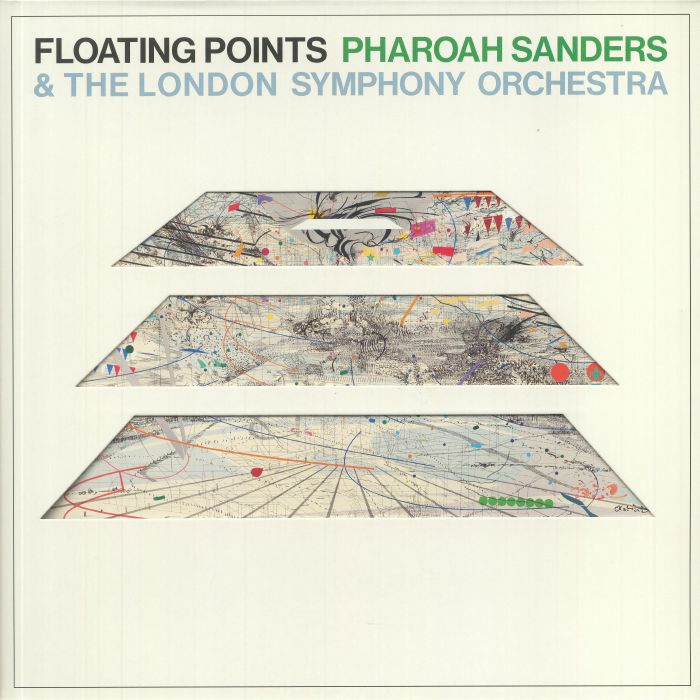
Floating Points / Pharoah Sanders / London Symphony Orchestra – Promises (Luaka Bop)
Saxophonist Pharoah Sanders’ collaborations have stretched far and wide since he first emerged as sideman to the great John Coltrane in the 1960s. From Don Cherry to Sun Ra, via Jah Wobble and Terry Callier such formations have ensured the now octogenarian player has remained at the vanguard of experimentalism and freeform.
This most recent collaboration with both The London Symphony Orchestra (LSO) and Sam Shepherd’s avant-electro project Floating Points is perhaps his boldest fling yet. ‘Promises’ is a single extended piece divided into a series of nine movements all written and composed by Shepherd, whose musicality is immediate, and a cornerstone of what is sure to go down as a masterpiece.
It is not until the “Movement 3” that the LSO make’s itself known with a majestic waft of energy created by its strings, but it is Sanders, accompanied by a harpsichord flourish who drives this work along with exquisite playing that ranges from the languid to outright playfulness.
Sanders’ use of space is wanton and extends to a perceived silence of about 8 seconds in “Movement 1”. As it moves along, the savvy listener will recall the gigantic feel of Ornette Coleman’s LSO accompanied Skies of America, albeit less brazen and also the melancholy stillness of Stan Tracey’s Starless and Bible Black.
That said, this is no less a behemoth of understated originality – an extraordinary and supreme piece of work.
APC
This week’s reviewers: Oli Warwick, Jude Iago James, Matthew D Watkin, AP Childs, Josh Clark